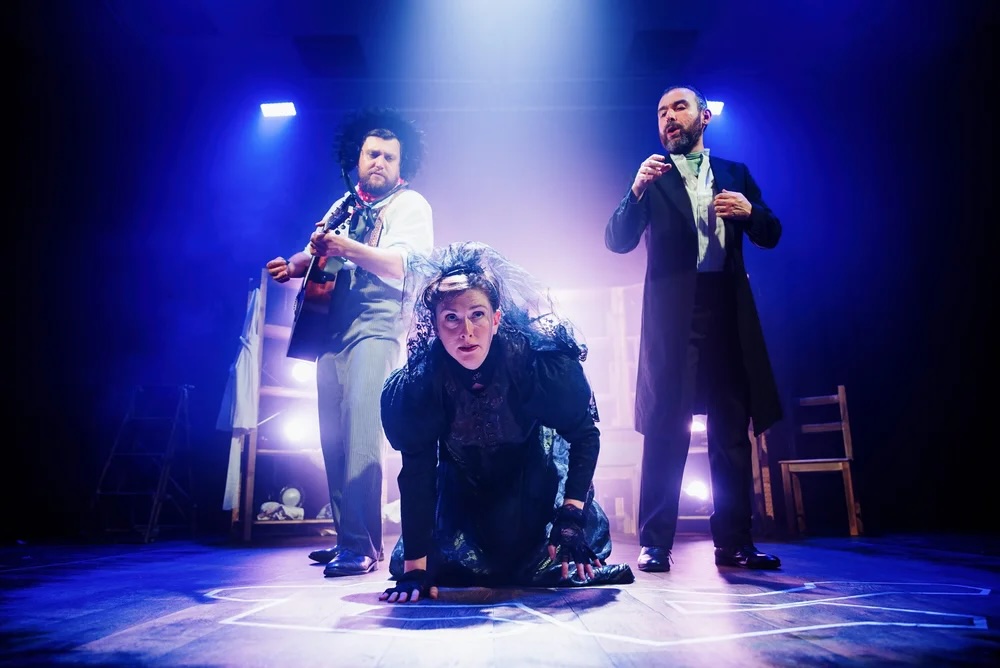“Lizzie Borden took an axe, gave her mother forty whacks.” You’ve probably heard those opening lines, but how many of us can quote the rest of the poem – let alone say anything about the real Borden’s life? The full truth, as this show acknowledges, is not just unknown but unknowable. And so here a cast of three tell a half-imagined story: one based on genuine transcripts from late-Victorian Massachusetts, but freely augmented by guesswork, humour and song.
Sasha Wilson plays Borden as both feisty and fragile, an unreliable witness whose inconsistencies may betray guilt – or may point to the medicalised paternalism all too common in her age. Wilson also features as herself, the playwright, whose research throws illuminating light on the niceties and preoccupations of the time. Lawrence Boothman (who’s camp and excitable) and David Leopold (who’s grounded and believable) complement each other as prosecutor, defence and witnesses. And all three contribute to the music, inspired by murder ballads and infused with the spirit of the blues.
There’s a folksy tone to the storytelling too, with props laid out on open shelves behind the stage and frequent shifts in and out of character for each the three performers. The heart of the show’s an extended courtroom scene, where accused and accusers sit atop a stepladder to be quizzed on their nebulous memories of the day: the action cuts snappily between the trial and imagined reconstructions of the events, and there’s telling humour in the way witnesses “reluctantly” share their damning claims.
What’s missing, for me, is much of a commitment to the underlying theme. We’re reminded from time to time of the slipperiness of the facts – the uncertain truth of all we’re seeing – and Boothman and Leopold do sometimes challenge Wilson to justify the theories they’re acting out together. But that thought doesn’t really lead anywhere; they just note what they’re doing and carry right on. The setup seems primed for some meta-theatrical introspection, but it’s really no more meta than a true-crime podcast which says “some scenes are fictionalised” at the start.
And so, while the script does raise questions about our biases and judgements, on another level it very much colludes in them. But those boundary-pushing podcasts are popular for a reason – and Bury The Hatchet is a guilty pleasure too. We’ll never know who truly wielded the axe, but by the end of the show you’ll at least understand who Lizzie Borden was. And perhaps, you’ll reach your own verdict on her notoriety.


Comments